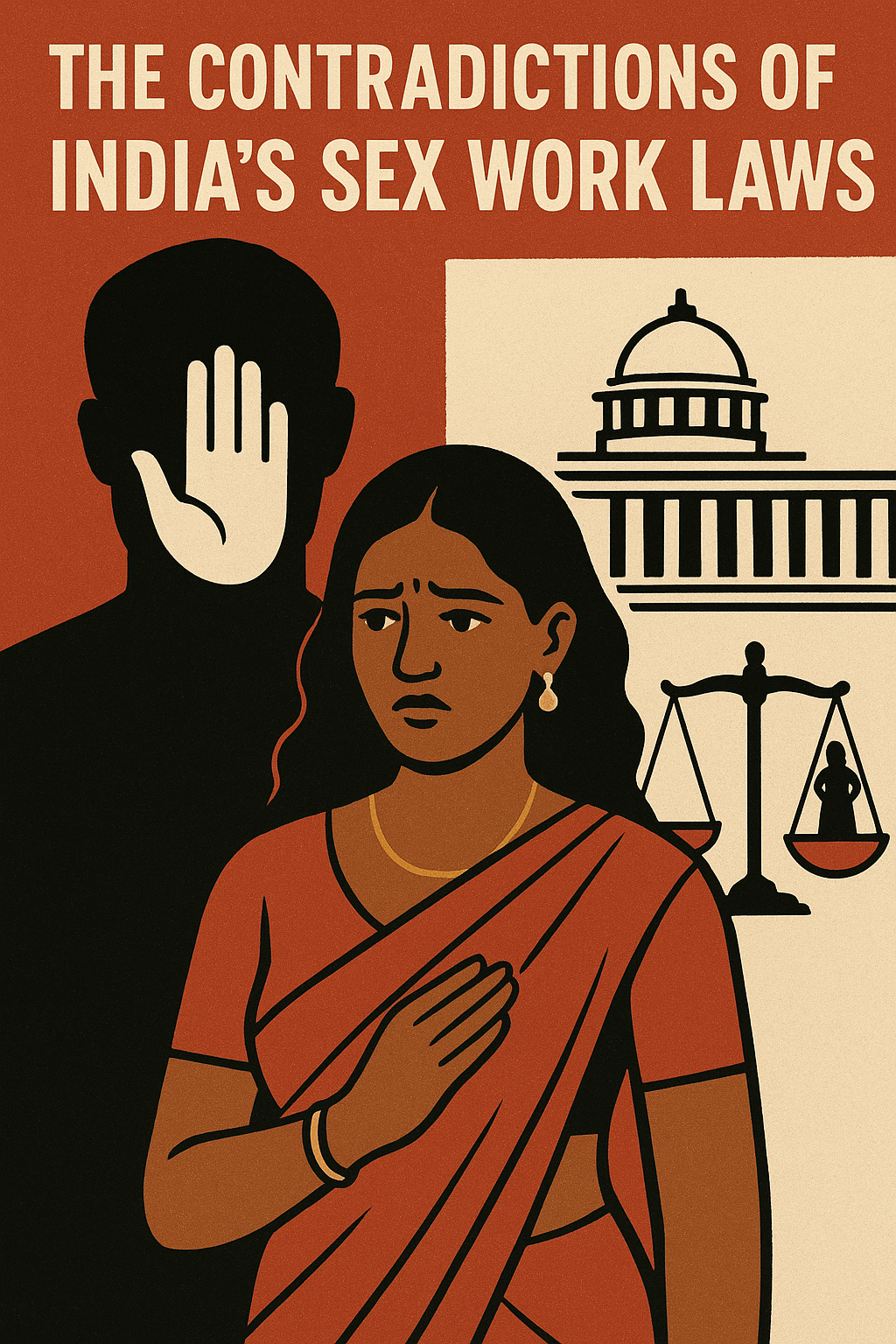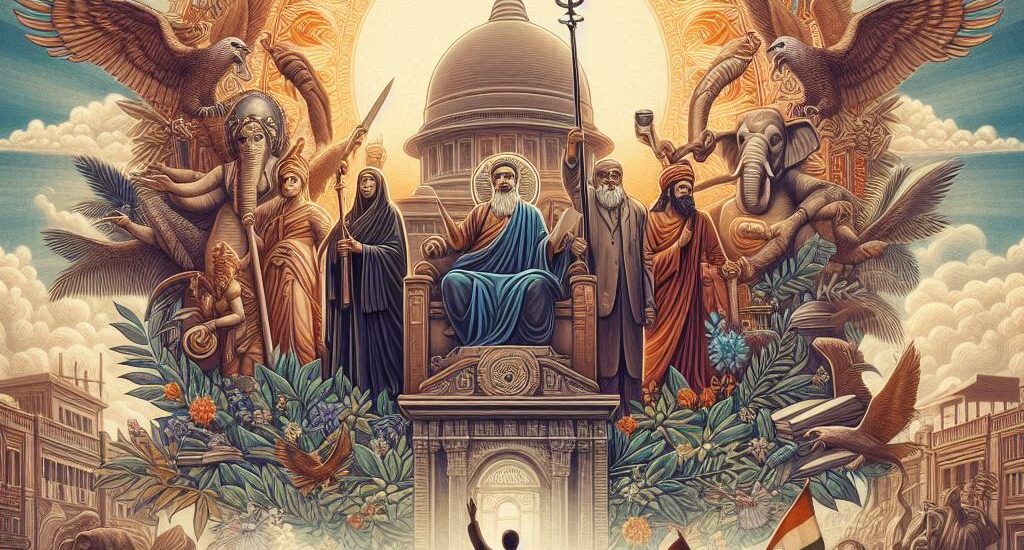



India is proclaimed to be a secular nation under the Indian Constitution. Due to India’s strong religious integration, diversity of culture, and abundance of religions, secularism was not a clear decision. Religion is allowed under Articles 25–28 of the Constitution, but only by public health, morality, and order. Article 44, which declares that the state shall attempt to obtain for the citizens a consistent civil code throughout the territory of India, is one of the weapons put in the hands by the Constitution. The minority’s main worry is that if the Universal Civil Code were to be applied, it would appear Hindu and deny them any meaningful role in expressing and practising their culture. The essential influence on religious freedom is one of the main barriers to the application of a Universal Civil Code. As a result, applying the Universal Civil Code to family laws is challenging. Many governments have come and gone but were not able to implement the Universal Civil Code. However, it is necessary to implement the Universal Civil Code in order to subject everyone to the same laws irrespective of religion.
Keywords: Religious Integration, Universal Civil Code(UCC), Implement, Constitution.
Since gaining independence in 1947, the universal civil code has been a contentious topic in India. The Universal Civil Code is mentioned in Article 44 of the Directive Principle of State Policy. The objective of UCC is to create a single body of rules controlling all aspects of life, including marriage, property, divorce, adoption, maintenance, and inheritance, in place of religiously based personal law. Beliefs such as Islam, Hinduism, Sikhism, Christianity, Jainism, and others adhere to local personal laws that regulate their private affairs. diverse societies are subject to diverse norms, particularly when it comes to personal law, hence the adherence to separate personal laws has long been criticized for creating persistent inequity. Advocates of the universal civil code contend that it is necessary for maintaining national unity and that all people ought to be treated equally, regardless of their religious beliefs. The implementation of the UCC, according to critics, will impede the fundamental right to practice their faith.
The concept of a Universal Civil Code is not new. It has been the subject of numerous historical statue discussions. Lord Mauculy proposed the Uniform Civil Code First Law Commission report in 1833 and also the concept of Lex Loci. Nearly all criminal law statutes had been passed by the 19th century, while personal law continued to control civil issues. Hindu law was codified in the 1950s for civil concerns, and the codification defines who is and is not a Hindu Muslim, including Parsis, Jews, and Christians. Additionally, Muslims established Sharia law for civil cases in 1937. The Dissolution of Muslim Marriage Act was passed in 1939, although it has only ever been examined by judges.
India’s constitution was drafted by the Constituent Assembly in 1946. There were two categories present in the Constituent Assembly: those who wished to use the Uniform Civil Code to change society, and Muslims who insisted on adhering to their own laws. As a result, the Uniform Civil Code was added in article 44 of the Directive Principle Of State Policy (DPSP).
Supreme invoked section 125 of the Crpc—which applies to all citizens, regardless of religion—to rule in Shah Bano’s favour in 1985. Parliament was thus ordered by the court to draft a UCC. The government passed the legislation to overrule the Supreme Court’s decision in the Shah Bano Case and permit Muslim Personal Law to be applied in divorce proceedings. This statute states that a Muslim woman’s right to maintenance is restricted to the three months that followed her divorce, or iddat, after which it passes to the Wakf Board or her family.
In the case of Sarla Mudgal v. Union of India, the Supreme Court ruled that it’s an abuse of particular laws to convert to Islam in order to get wedded again. A person can not dissolve a Hindu marriage by simply converting to Islam and getting wedded again; doing so would violate Section 494( 5) of the Indian Penal Code.
V.V. Khare, Chief Justice of India “According to Article 44, the State is required to make efforts to ensure that all Indian citizens have access to a Uniform Civil Code across the country. We deeply lament that Article 44 of the Constitution has not been implemented. For the purpose of creating a national civil code, Parliament must still intervene. A Common Civil Code will aid in the process of national unification by eliminating ideological inconsistencies.
The Juvenile Justice (Care and Protection of Children) Act seems to be an attempt to get toward UCC. Furthermore, it enabled Muslims to adopt children in spite of the fact that it was against their own personal laws. It appears that the Juvenile Justice (Care and Protection of Children) Act is an effort to go in the direction of UCC. The Supreme Court of India again asked the Union Government to create a UCC in order to eradicate gender inequality and the outdated traditions that were upheld within the boundaries of personal laws.
The application of the UCC is complicated by the diverse and eclectic nature of Indian culture, where personal laws are deeply linked with religious and cultural identities. The historical resistance to codification reflects the difficulties in striking a compromise between the preservation of religious and cultural diversity and the requirement for consistent civil laws. It has been observed that the UCC’s implementation benefits society in a number of ways, including national unity, gender equity, and the elimination of legal uncertainty, which reduces the court’s decision-making process. It has been observed that the UCC’s implementation benefits society in a number of ways, including national unity, gender equity, and the elimination of legal uncertainty, which shortens the court’s decision-making process.
On the other hand, the unified civil code’s implementation will pose a threat to India’s rich religious diversity. The authority of the dominant community over the minority group and the challenges of bringing disparate personal rules under a single, unified code are major considerations. The analysis demonstrates the need for a careful balance between advancing equality and preserving cultural identity.
https://www.thelegalyoungster.com/legal-internship/